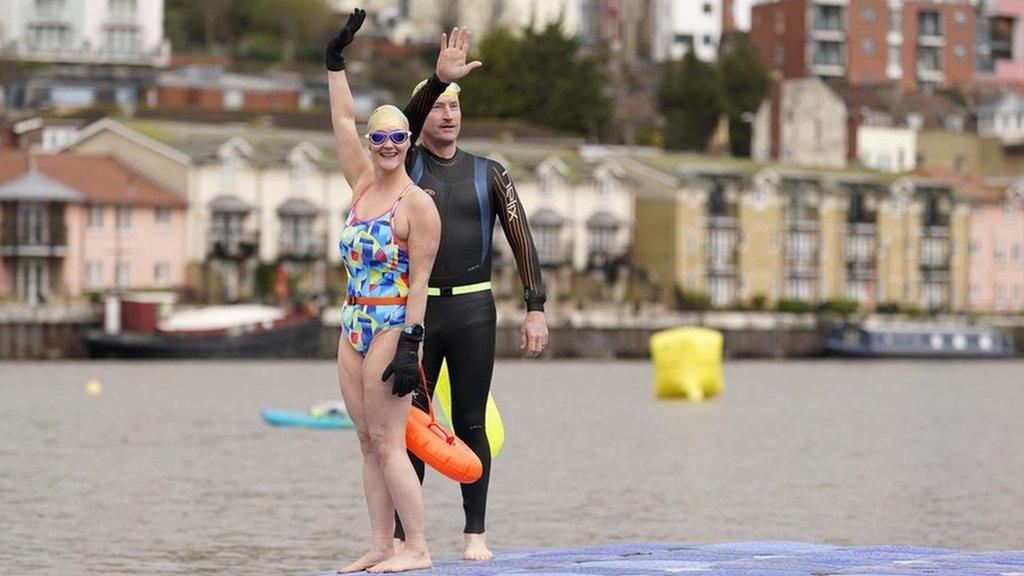Bristol residents want wild swimming on the Avon
- Published
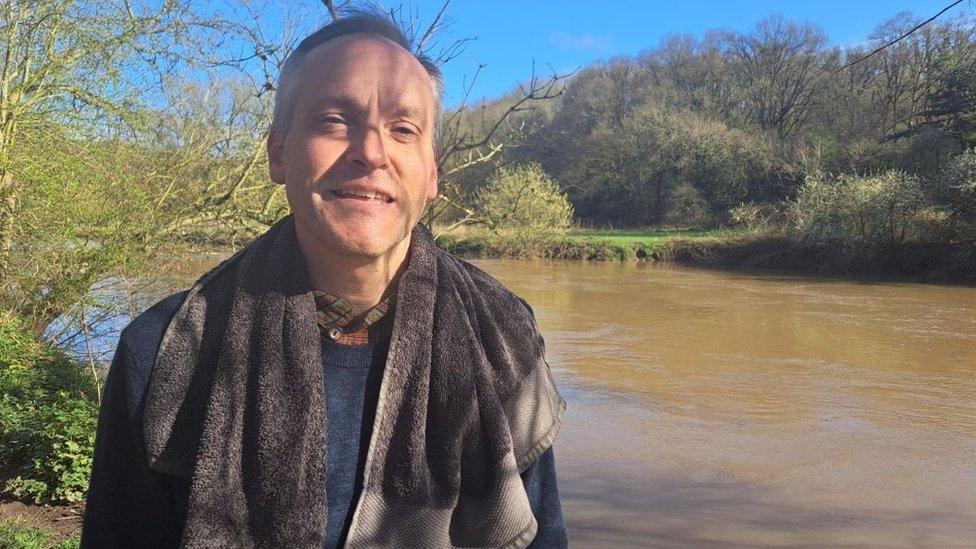
Christian John Liberati regularly swims at Conham
A group of wild swimmers are campaigning for bathing water status for a stretch of the River Avon. But as raw untreated sewage continues to be pumped into the river, a new film has documented their uphill battle.
Christian John Liberati is a Totterdown local and swims at Conham River Park two to three times a week.
"It's my life. I couldn't live without it," he said.
"I work for a mental health charity, so it actually helps me to clear my mind and be able to focus on what I'm doing.
"It's very cleansing emotionally, but also physically it's very good for the body and for the immune system."
The Conham Bathing group is fighting for Designated Bathing Water Status (DBWS) to be granted to the stretch between Eastwood Farm and Conham River Park in east Bristol.
The site is popular. Mr Liberati explained that he has a friend in his 70s who swims six or seven times a week.
The DBWS distinction would place a legal duty on the Environment Agency to monitor the river quality in this area and publish information to the public about how safe it is for wild swimming.
There are currently only three rivers in England that have been granted the status.
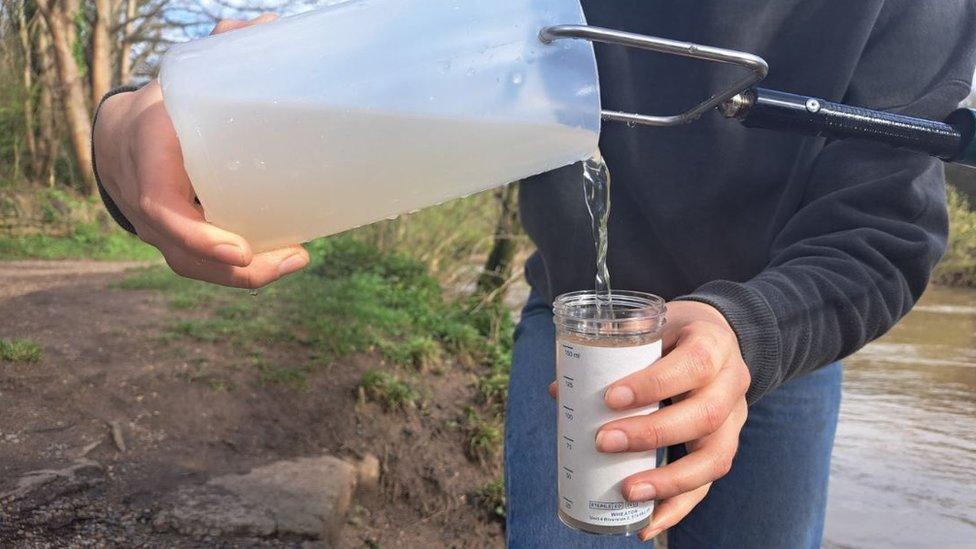
The Conham Bathing group have taken it upon themselves to test the River Avon
During heavy rainfall, the local mostly Victorian sewage system managed by Wessex Water can overflow which causes raw sewage to be discharged into the river.
The Conham Bathing group have taken it upon themselves to test the River Avon for bacteria such as E. coli, and the samples are sent to Wessex Water's laboratory for testing.
Conham Bathing campaign also has an online database that tracks sewage overspill statistics into the Avon.
In February 2024, the group says raw sewage flowed into the river for a combined total of 8,164 minutes - more than five and a half days.
It also claims that in 2023, sewage was discharged into the river for 26,757 minutes, meaning that the month of February 2024 alone has accumulated over 30% of the total sewage discharge time from the previous year.
Dr Eva Perrin and Emma Nicol are founding members of the Conham Bathing group.
Dr Perrin, an expert in freshwater ecology, said that DBWS would be "a mechanism for wider change".
"We just don't have enough data to understand the impact of sewage on the ecosystem," she said.
"Rivers are such dynamic systems, with so many inputs throughout the whole catchment basin that can affect any given bathing site."
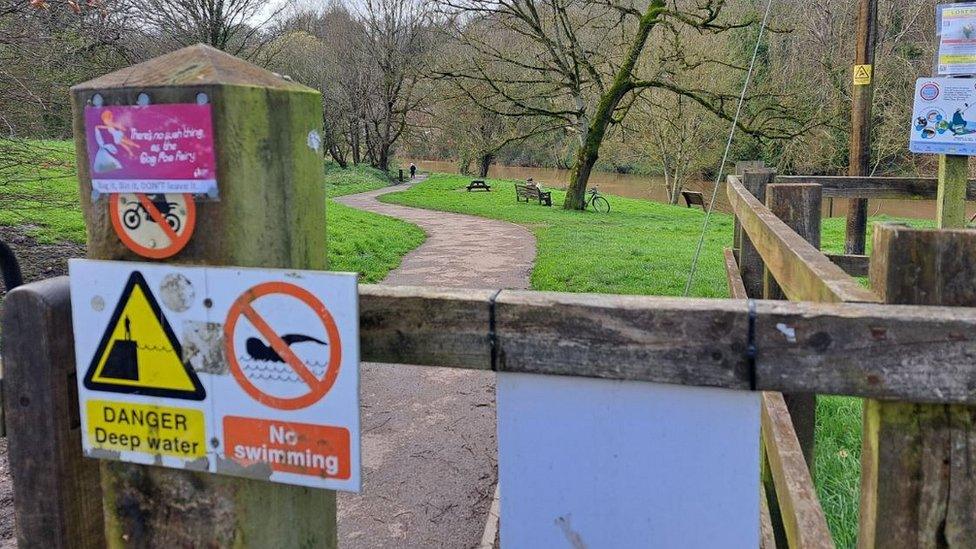
Swimming is currently prohibited
In areas that are granted DBWS, the Environment Agency tests the water once a week during peak swimming season - May to September.
Dr Perrin said: "So, that's a maximum of 20 samples a year taken at one point in time, in one location."
In 2022, a petition organised by Conham Bathing gathered over 5,000 signatures, and Bristol City Council unanimously voted to amend the bylaw that prohibits swimming between the Floating Harbour and Hanham Lock which would then allow a DBWS application.
This decision was overruled by mayor for Bristol Marvin Rees.
A spokesperson for the council said: "Without professional safety supervision and direction there remain a number of significant risks associated with entering Bristol's waterways, including at Conham."
The council cited the risk of cold-water shock, waterways traffic and the risk of illness and infection as why many open water areas in Bristol have bylaws which prohibit swimming.
But as the council's pilot swimming scheme at Baltic Wharf in the Floating Harbour enters its second season, the Conham Bathing campaigners are hopeful that swimming will soon be allowed in other areas of the city.
Ms Nicol said: "There's already so many barriers to accessing nature anyway. It can't always just be for the people in the city centre who can afford to pay for it.
"It's about enabling people to access nature, and of course the environment more broadly, because if the environment's healthy, then it benefits us in so many ways. "
During eDNA sampling in 2022, Bristol City Council found that the Avon was home to the critically-endangered European eel, as well as Atlantic salmon and brown trout.
Ms Nicol said: "Commercially important species like salmon are using the river. They just shouldn't have to suffocate in our excrement."
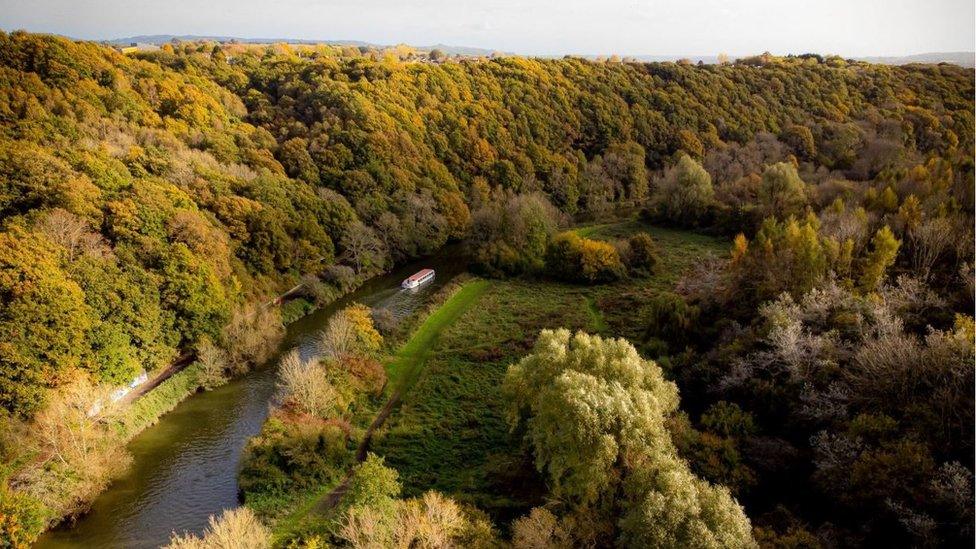
It is hoped a new film will encourage a national discussion of the cleanliness of UK rivers
A new documentary film 'Rave On for the Avon' by Charlotte Sawyer has followed the Conham Bathing campaign. The film will screen in Brislington on Saturday, 23 March.
Ms Sawyer said: "The hope is to change the minds of the powers that be that are stopping this from being a designated bathing spot by showing them how much people love the river, how many people rely on it for mental health and wellbeing.
"In this film there were ups and downs, but it is about love and it is about positivity, because otherwise with campaigning you just just get burnt out and you get so frustrated."
Ms Sawyer hopes the film will encourage a national discussion of the cleanliness of our rivers and inspire other wild swimmers to campaign for DBWS.
Local MP for Bristol East Kerry McCarthy told the BBC: "I love wild swimming, but then I don't get to do it very much. Where we want to get to is where people can safely swim in areas like Conham."
Ms McCarthy described the government's Environmental Improvement Plan which aims to ensure water companies deliver a 50% reduction in leakages by 2050 as 'unambitious'.
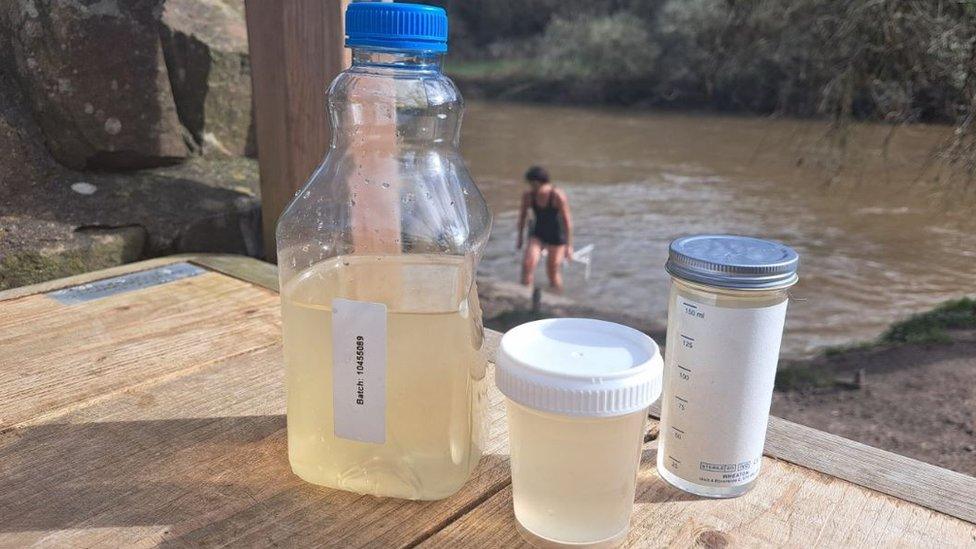
The Conham Bathing group regularly collects water samples from the Avon
A Wessex Water spokesperson said: "We understand and support the desire to make more use of rivers for recreation, including swimming, so we've been working with the council and the Conham Bathing group to increase awareness of water quality.
"Lowland rivers will always have bacteria in them, while the safety of wild swimming at specific locations is for councils and others to determine. But we want to help people make an informed choice.
"Subject to regulatory approval, our investment in overflows will more than double from 2025, prioritising those that operate most frequently or impact the environment."

Follow BBC Bristol on Facebook, external, X, external and Instagram, external. Send your story ideas to us on email, external or via WhatsApp on 0800 313 4630, external.
Related topics
- Published13 February 2024
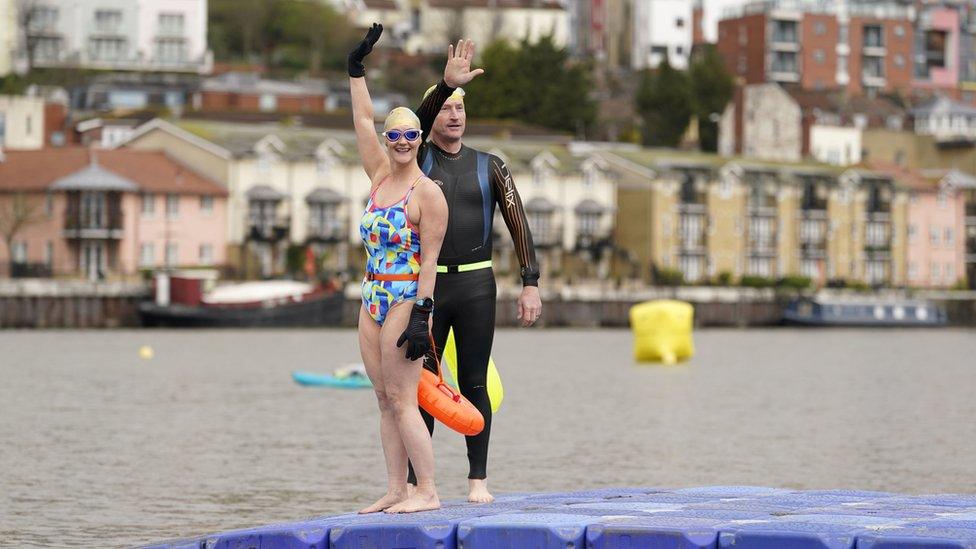
- Published26 November 2023
- Published29 April 2023
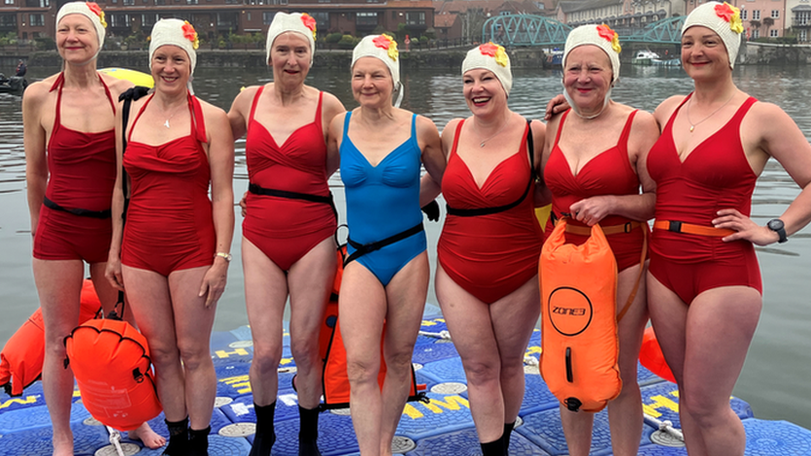
- Published29 March 2023
